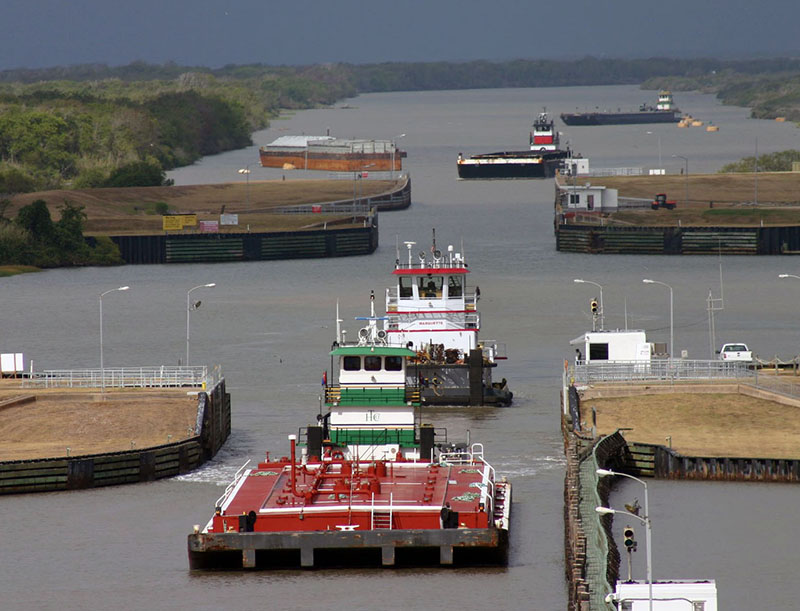Maritime workers — including those working on barges, in energy transportation and at ports — are considered “essential employees” and should report to work even under state or local shelter-in-place or stay-at-home restrictions designed to slow the spread of the novel coronavirus.
The Department of Homeland Security’s Cybersecurity and Infrastructure Security Agency (CISA) issued a list Thursday of “essential critical infrastructure workers” to help state and local officials identify those who should stay on the job during the coronavirus crisis.
Calling them either shelter-in-place or stay-at-home restrictions, a growing number of states and local governments are curbing or shuttering businesses and limiting the movement of people to stem the disease’s spread. DHS stated that these responses are locally executed, state managed and federally supported.
Concerning the maritime industry, the DHS list zeros in on “port workers, mariners, equipment operators, employees who maintain marine vessels and the equipment and infrastructure that enables operations that encompass movement of cargo and passengers.”
Also included are those involved in marine transport and storage of crude oil and petroleum. LNG facilities and transport, and workers who support the operation, inspection and maintenance of the nation’s locks, dams and levees are also considered essential. Workers involved in the necessary credentialing, vetting and licensing operations of transportation workers are also included.
The American Waterways Operators, the association representing the tug and barge industry, has been working closely with federal officials to make sure barge industry workers are classified as essential and are able to get to their jobs despite stay-at-home restrictions imposed where they live.
AWO has posted on its website templates of two letters that can be used by waterways companies stating that their employees are considered “essential critical infrastructure workers” under the DHS guidelines. One letter can be sent to state, city or other government bodies to assure the “free passage” of maritime transportation workers to their jobs. The other identifies employees as essential.
Both letters emphasize the importance of allowing maritime workers to get to their jobs and quote the DHS memorandum that states: “If you work in a critical infrastructure industry as defined by the Department of Homeland Security, you have a special responsibility to maintain your normal work schedule.”
Letter templates and other updates can be found on AWO’s website.
As of Monday afternoon, stay-at-home and/or non-essential business closures are or will be in force in many key areas where barges operate. These include New York, Louisiana (as of 5 p.m. Monday), Kentucky, Ohio (as of 11:59 p.m. Monday), Massachusetts, Delaware (as of 8 a.m. Tuesday), Maryland (as of 5 p.m. today), Illinois, Pennsylvania, New Jersey, California and St. Louis.
Check out the latest on the coronavirus pandemic and the workboat industry here.




